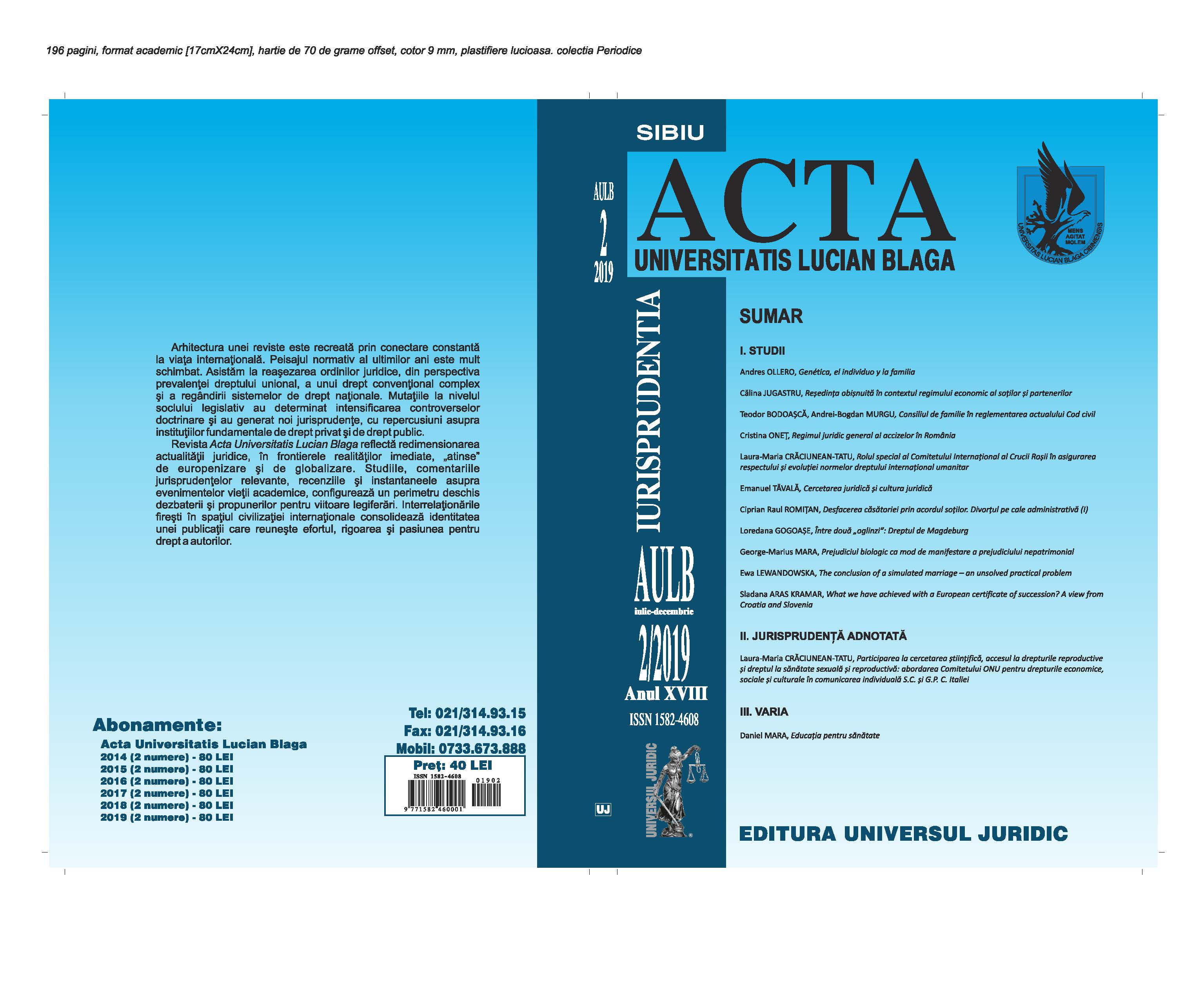Rolul special al Comitetului Internaţional al Crucii Roşii în asigurarea respectului şi evoluţiei normelor dreptului internaţional umanitar
The Special Role of the International Committee of the Red Cross as Guardian and Promoter of International Humanitarian Law
Author(s): Laura-Maria Crăciunean-TatuSubject(s): Law, Constitution, Jurisprudence, Civil Law
Published by: Universul Juridic
Keywords: international humanitarian law; ICRC; Solferino; humanity; proportionality; prisoners of war; international armed conflict; internal armed conflict; use of force;
Summary/Abstract: The Special Role of the International Committee of the Red Cross as Guardian and Promoter of International Humanitarian LawSummaryThe role of this paper is to highlight the special role that the International Committee of the Red Cross (ICRC) plays in ensuring compliance with and in the evolution of international humanitarian law norms. Established in Geneva, in 1863, the most well known of the ICRC's missions is to protect the lives and dignity of victims of armed conflicts or of any other situations of violence, to assist them and to prevent human suffering by promoting and strengthening the international humanitarian law and the universal humanitarian principles. Thus, the mandate of the ICRC was established by the Geneva Conventions of 1949, the three additional Protocols to these conventions (1977 and 2003), the Statutes of the International Red Cross and Red Crescent Movement and the resolutions of the International Conferences of the International Red Cross and Red Crescent Movement. However, one of the most valuable – although sometimes insufficiently visible – missions of the ICRC is that of prevention. Prevention work involves „taking actions to prevent the suffering directed at influencing those who can determine – directly or indirectly – the fate of those affected (by armed conflict or other situations of violence) and, generally, implies the adoption of a medium and/or long term perspective”. Specifically, as part of its preventive work, the ICRC maintains a constant dialogue with states and non state actors and reminds them of their obligations under international humanitarian law. Also, the ICRC organizes training courses in international humanitarian law for an extremely diverse category of beneficiaries (representatives of states, teachers, humanitarian practitioners) and prints out publications in this field. In addition, the ICRC (in particular the International Humanitarian Law Advisory Service) offers specialized services to states to help them incorporate their international humanitarian law obligations into national law, institutions and practice.
Journal: Acta Universitatis Lucian Blaga. Iurisprudentia
- Issue Year: 2019
- Issue No: 02
- Page Range: 64-79
- Page Count: 16
- Language: Romanian
- Content File-PDF

